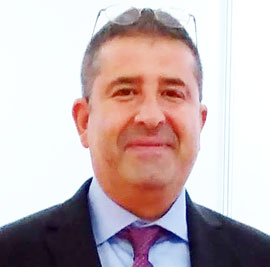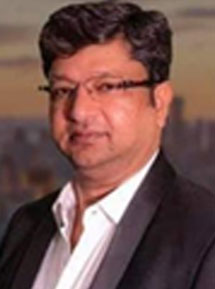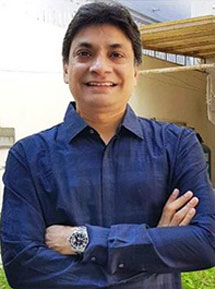Mr. Nikolay Gushevilov
BMR Ambassador &
Raw Materials Procurement
Middle East and Balkans, Europe at Aurubis
Raw Materials Procurement
Middle East and Balkans, Europe at Aurubis
News update from BALKANS, EUROPE on the recycling industry's main players (manufacturers, traders, importers & exporters, stockists, agents, and machine makers etc.) – Updated 24/04/2023
In the Balkans region, there are 2 major industrial players:
Aurubis and Viohalco, both are BMR members and 100% of non-ferrous and ferrous recycling industries are in their hands. Their portfolios of recycled scrap includes most of the non-ferrous and steel scrap.
Both operating well and in the last 2 months, it is noticeable that supply and offers are exceeding the demand. Also, there are few battery producers in the region, who are consuming refined Lead ingots and scrap.
It is important to clarify that export of non-ferrous scrap and steel scrap is max 10% of generated in the region and this is because local companies prefer to stay local. There are only few traders, who are concentrated in 1-2 items like brass scrap, that are not recycled locally.

News update from Turkey - Updated 30/03/2023
Compared to the same period of the previous year until March, a decrease of 19.2 percent was observed in ferrous and non-ferrous metals, and 38.8 percent in steel. The government is rebuilding 11 affected cities but expensive energy and human resources (so many lives lost) remain as the main problems for our sector for now. The Government invites recyclers for the earthquake scrap but there are no certain policies / results on this yet.

News update from North India
# Weak sale of Finished products in North – India marke
# Some Importers are in buying to continue their chain

News update from Hong Kong - Updated 28/4/2023
After all restrictions finally lifted in March, most of Hong Kong's activities including international sport events, business conferences and exhibitions have gradually resumed.
While economic outlook is blurred due to prolonged high interest cost, extra downward pressure has intensified by slower domestic demand and weakened export growth affecting literally all business sectors, with no exemption can be expected for local metal recycling industry.
With increasing cross- boundary activities and relatively slow but stabilized growth in China being recorded, the overall sentiment on all sectors is notably improving. Yet, how robust is China's economic performance in the coming months will certainly have significant impact on the recovery of our economy as well as the local metal industry.

News update from India – updated 09/06/2023
India to Regulate Metal Imports with Quality Control Orders
According to government officials, the final quality control orders for Aluminium, copper, and nickel are being prepared to reduce the import and sale of low-quality metals. The aim of this policy is to regulate the sale of these metals by enforcing compliance with Bureau of Indian Standards (BIS) rules. "We will notify the quality control orders as soon as possible," said a senior mining ministry official who preferred to remain anonymous.
They emphasized that all Aluminium, copper, and nickel sold in the country must meet minimum quality standards. In addition to this, the steel ministry has proposed implementing quality control measures for steel and steel products.
The government had released draft quality control orders in March and sought public feedback. The final notification will be issued after conducting consultations with stakeholders. Currently, approximately half of India's copper demand is met through imports, while the entire nickel demand is imported. Additionally, over 40% of Aluminium usage in the country is in the form of alloy scrap. The senior vice president of ICRA Limited expressed concerns about the proposed quality control order. They stated that it might lead to the elimination of sub-grade material imports, potentially causing a shortage of raw materials for downstream producers. This could result in increased product prices in the domestic market in the near term.
Mumbai, 09 June (Commodities control)

MARKET HUB – Updated 27/11/2024
1. Trafigura Drives Zinc Withdrawals: Trafigura Group has initiated the withdrawal of thousands of tons of zinc from London Metal Exchange (LME) warehouses, according to sources.
2. Largest Withdrawal in Over a Decade: Zinc orders from LME warehouses surged by 97,225 tons in the past two days, marking the biggest increase in over ten years.
3. Impact on Market Prices: The reduced stock availability has fueled a rally in zinc prices since the beginning of the week.
4. Trafigura’s Influence in Zinc Trade: As one of the world’s largest traders and producers of zinc, Trafigura operates several zinc smelters, making this move a strategic market maneuver.
5. Silence from Key Parties: Both Trafigura and the LME declined to comment on the withdrawals, citing the sensitive nature of the matter.

News update from INDIA on the Mines & Minerals Amendment Bill, keyplayers (manufacturers, traders, importers & exporters, stockists, agents,and machine makers etc.) – Updated 5/09/2023
Government has passes Mines and Minerals Amendment Bill. The amendment introduces Major Reforms in the Mining Sector with aFocus on Critical Minerals.
Tata Steel is powering its decarbonisation journey with a big bet on scrap. Because it can be recycled indefinitely without losing any ofits properties, steel is frequently referred to as the ideal "circular material." Tata Steel wants to use this quality of the metal as it strivesto green its operations in India by 2030. The company's motto appears to be "Tap the Scrap."
India has historically been a major importer of defence technology, but its exports reached a record high of Rs 15,920 crore in FY23.With a 4.1 million tonne (MT) installed smelting capacity, India's domestic aluminium industry should be able to easily meet demand.

Two Memorandums of Understanding (MOUs) pertaining to the promotion of local currencies for cross-border transactions and theconnection of the payment systems UPI with the UAE's Instant Payment Platform (IPP) have been signed by the Reserve Bank ofIndia and the Central Bank of the United Arab Emirates (CBUAE).
India has designated 30 minerals as essential, including lithium, chromium, cobalt, and nickel. Pralhad Joshi, the minister for mining,referred to the list as "India's roadmap for 'Aatmanirbhar Bharat,'" a term borrowed from Sanskrit that means "self-reliance." Energyexperts praised both actions as positive steps in the right direction.
Adani's USD 1.1 bn copper project to start operations from Mar 2024. A greenfield copper refinery project is being set up by KutchCopper Ltd (KCL), a subsidiary of the group's flagship Adani Enterprises Ltd (AEL), to produce refined copper at a rate of 1 milliontonnes per year in two phases.
The newly discovered lithium reserves and other minerals can now be mined by the government of India thanks to a law that wasapproved by the Indian Parliament. This will increase the mining of the vital raw material for the batteries used in electric vehicles.
According to CEO Henri Poupart-Lafarge, the French railroad giant Alstom will use new aluminium technology for the Vande Bharatproject for the first time.
Given the government's emphasis on infrastructure development, ICRA forecasts that domestic aluminium demand growth will remainhealthy at around 9% over the next two fiscal years.
Global Copper Market Update – 2024 Outlook with India Focus – Updated 10/12/2024
The International Copper Study Group (ICSG) has released its latest forecast for 2024, shedding light on global copper trends and India’s growing significance in the sector.
Global Highlights:
India-Specific Insights:
Key Drivers:
Production & Demand Insights:
How do you see copper shaping India’s journey toward infrastructure and renewable energy transformation? Let’s connect, collaborate, and contribute to building a sustainable and self-reliant India.
Contact Us:
suneelrmardia@mtlexs.com | support@mtlexs.com
